23 Oct 2024
Thai visitor arrivals stats prove link between tourism and peace
Bangkok — Thailand has reported 26.08 million arrivals in the nine-month Jan-Sept 2024 period, up 30.09% over the same period of 2023. A deeper analysis shows how the country is benefitting from both internal peace and external conflicts as it seeks to safeguard the role of tourism as an economic mainstay in the second year of post-Covid recovery.
It had been earlier hoped, although not targetted, that arrivals would hit the 40 million mark of pre-Covid 2019. That expectation has now been tempered to 35-37 million in view of the extremely fragile and flammable global scenario and the impact of the upcoming Electronic Travel Authorisation requirement.
However, in a year when World Tourism Day was marked for the first time under the theme of Tourism and Peace, the nine-month figures show clearly that Thailand’s balanced foreign policy and open-door visa policy, plus the vitally important prevalence of domestic peace, have all been major contributors to keeping visitor arrivals flowing. All other marketing, pricing and promotional and product development policies are an adjunct to that.
Regardless of what happens, war and conflicts of all kinds (military, economic, socio-cultural-communal) are set to become the primary determinants of travel flows in future, impacting on perceptions of friendliness and sense of welcome, as well as safety and security.
This analysis of the Jan-Sept 2024 visitor arrivals shows the importance of preserving all forms of peace and safeguarding it from both external forces as well as internal divisiveness and political confrontations.
Countries in Direct War and Conflict
Russia is battling Ukraine. Israel is at war in Palestine and Lebanon, and indirectly with Iran. The Houthis from Yemen are bombing ships in the Red Sea. The Myanmar military is battling its ethnic groups, especially the Rohingyas.
In spite of that, visitors to Thailand from these countries are in full flow.
Each of these arrivals has a different reason — rich people fleeing conscription or others seeking help for mental trauma or in the case of Myanmar, medical treatment at Thailand’s renowned hospitals. Either way, Thailand is seen as a safe haven.
The arrivals from Myanmar are noteworthy. They only include arrivals by air, not the border-crossers. Thailand shares a 2,416 km border with Myanmar, which is also the bridge-head country between two entire regions, South Asia and Southeast Asia. If peace returns to that country, that entire border area will boom. In fact, both regions will boom.
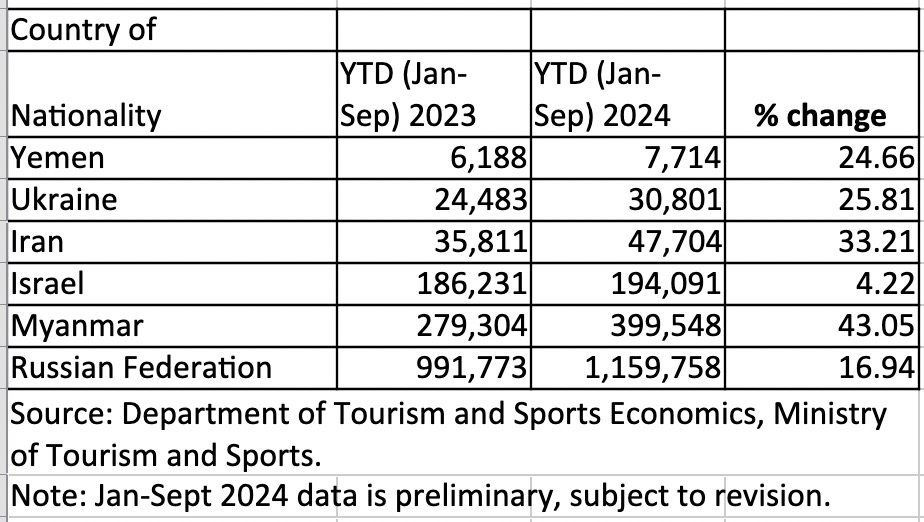
ASEAN region
The ASEAN region will remain one of the world’s most shining examples of how tourism benefits of peace, and vice versa. Laos, Cambodia and Vietnam were once zones of conflict and wars. When the guns fell silent, tourism played a major role in the nation-rebuilding effort. Today, both their inbound and outbound travel sectors are booming, and Thailand is a major beneficiary. By contrast, Myanmar still remains mired in conflict.
The decline in visitor arrivals from Vietnam and Cambodia needs to be carefully analysed, however. The numbers may pick up in the last quarter of 2024. Singapore arrivals have also fallen, primarily because Singaporeans are frequent visitors to Thailand and the young generation has many other destinations to choose from.
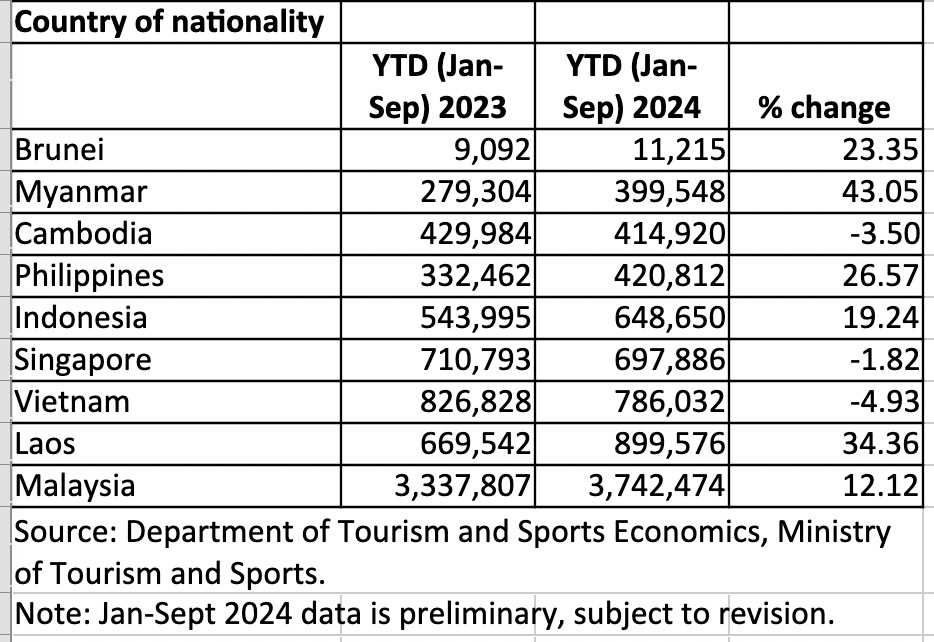
Middle East: Frontline and Regional countries
Even the countries right on the border of the Israel-Palestine conflict, such as Jordan and Egypt, as well as those in the broader neighbourhood, are generating visitors to Thailand.
Perhaps the most significant example of the tourism benefits of peacebuilding is the soaring number of arrivals from Saudi Arabia.
It was only in January 2022 that the two kingdoms patched up a 32-year diplomatic rift, leading almost immediately to a surge in two-way traffic. Saudi arrivals to Thailand totalled 96,158 in 2022, doubled to 178,113 in 2023 and are projected to cross 200,000 this year. Saudis are also one of the most productive source-markets in terms of expenditure and average length of stay.
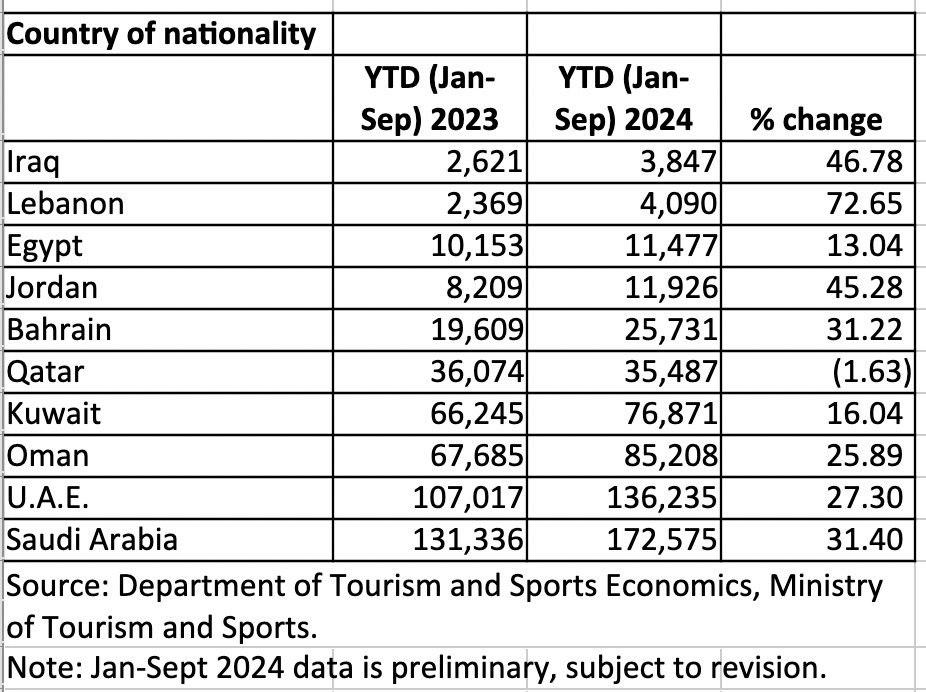
South Asian countries
South Asia is another region generating significant visitor numbers. Its numerous metropolitan cities are bursting with upper-middle class populations, and all located within four to five hours flying time from Bangkok. Normally, intra-regional travel, including from the immediate neighbours, is the most dominant source of visitors for any country. But South Asian countries are all mired in diplomatic, political and ethnic conflicts, with severe visa restrictions. As a result, they don’t travel within their own region but head for Thailand.
Bangladesh, the Maldives and Sri Lanka have all had political upheavals and changes in government this year. All that had a minor and temporary impact but the arrivals flow resumed strongly thereafter. Pakistan is facing huge economic problems, but its well-off citizens still make a beeline for Thailand. With its huge population base, India, of course, will remain a major source-market for years ahead.
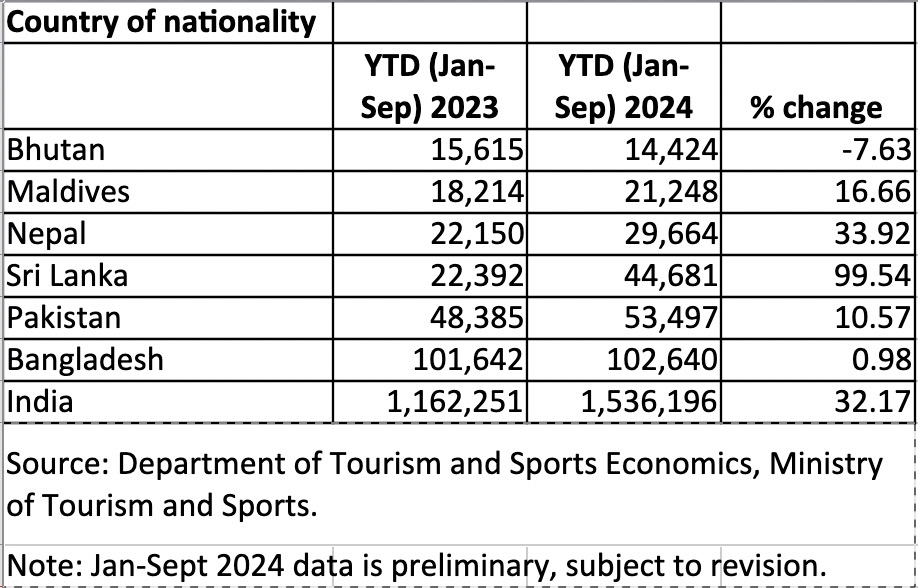
The BIG FIVE
These five source-markets have each crossed the one million mark. At least five more countries will join the list by the end of the year.
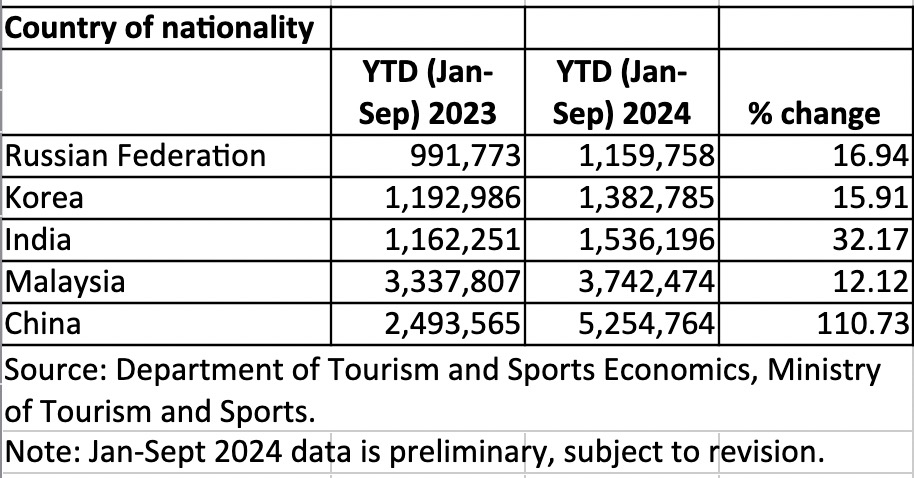
The Second Tier countries
These source-markets all generated from 100,000 – under one million visitors in Jan-Sept 2024. The list is a good mix of short-, medium and long-haul countries. Particularly noteworthy is Kazakhstan, which was given visa-free access to Thailand earlier this year, a move which seems to have generated about average results.
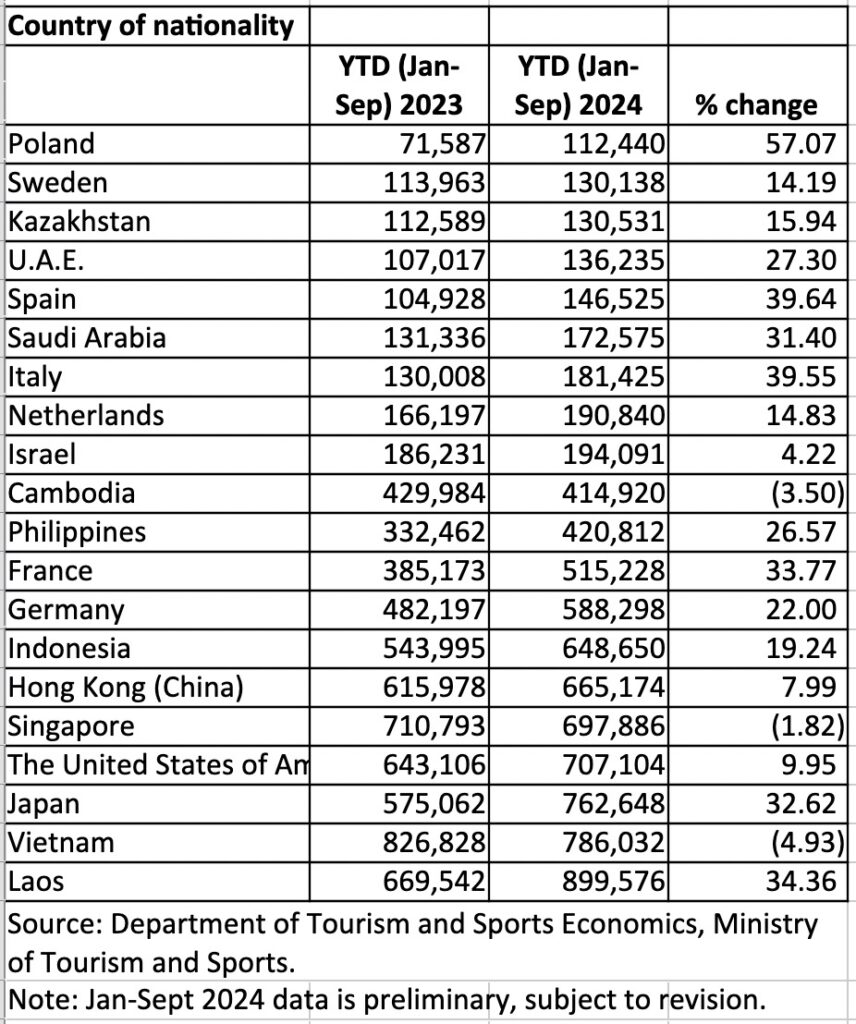
The future potential source-markets
These are all emerging markets where the future potential lies. None of them had more than 50,000 arrivals in Jan-Sept 2024, which makes them ripe for marketing promotions. They are spread across multiple regions ranging from South America to Central Europe to Asia.
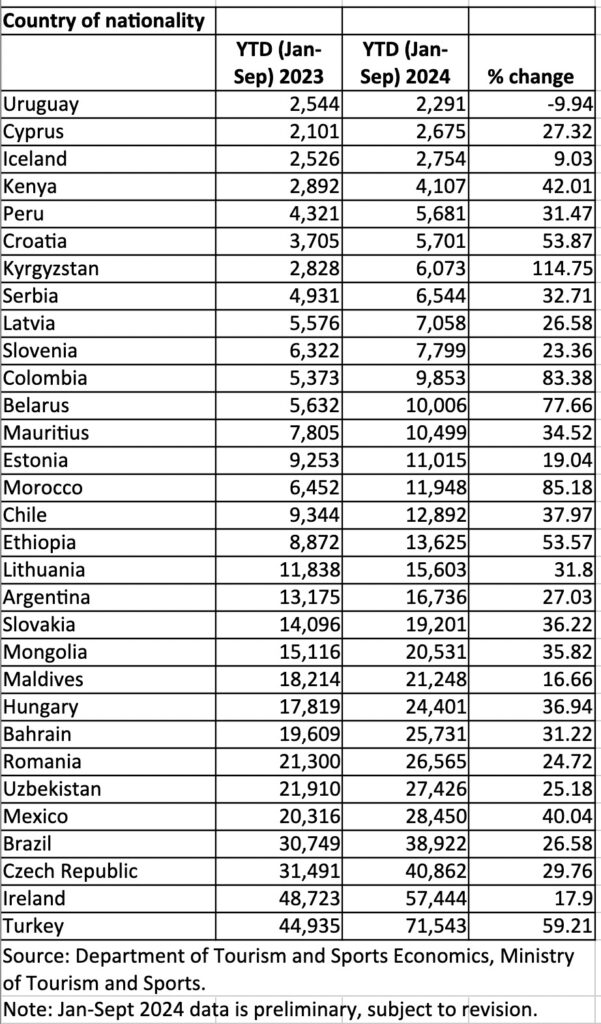
Conclusion
Any disruptions in global, regional or local peace will have a severe impact on Thai tourism. Unfortunately, the industry is ill-prepared for these disruptions, seeing them as being beyond its control. Some changes in that mindset will be required.
The impact of Climate Change, the current flavour-of-the-month discussion topic, is being felt but still a few years away. The impact of disruption in peace and stability will be far more immediate.
Both are man-made problems. If the industry is now working furiously to alleviate climate change, it will need to find ways of helping to preserve the peace.
Nothing Ventured, Nothing Gained.
